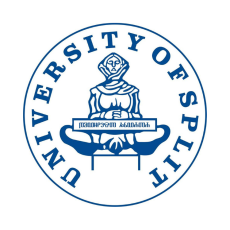“The SOPs4RI toolbox is a valuable source of different guidelines that we could use as an example for developing our own guidelines that will be tailored to the needs of the University of Split and its researchers”
Before engaging in the content tours and SOPs4RI pilot testing initiative, at the University of Split, we did not have anything similar to Research Integrity Promotion Plan. However, the University of Split started working intensively in the past year on research integrity implementation and one of the first steps was translating and implementing the European Code of Conduct for Research Integrity. This was finalized in October 2020 when University implemented the Code and made it available on its web pages. In search of how to further develop and implement research integrity at the University of Split, we joined the pilot testing – to learn how we can start developing research integrity initiatives in our setting, and to exchange experiences with other pilot institutions (to learn what worked for them and what were the challenges they faced with when starting to implement more initiatives related to research integrity). The content tours were informative and provided insights on topics that we plan to work on in the future in more detail, for example, topics like research integrity education and responsible data management. The self-assessment matrix, done as a part of the exercise in pilot texting was an excellent tool that helped us map in one place what we already have regarding certain research integrity topics, as well as to identify upon which documents we can build up in the future, and what are the areas we need to start from scratch. The University of Split is continuing its development in the research integrity area based on the knowledge and experience obtained during the pilot testing. Moreover, besides the obtained knowledge, the pilot testing was great for meeting new people that are working on the same issues and thus helped us to create the network for further communication and advice regarding research integrity.
The SOPs4RI toolbox is a valuable source of different guidelines that we could use as an example for developing our own guidelines that will be tailored to the needs of the University of Split and its researchers. At the University of Split, we still do not have Research Integrity Promotion Plan but we are a step closer to that. Recently the University developed an Action plan for promoting and implementing research integrity at the University. The action plan considers different areas of research integrity, as well as strategic goals in these areas and departments in charge of taking actions and fulfilling set goals.
The mamin difficulties we encounterd on our journey are related to the lack of the national infrastructure and support for research integrity. In Croatia, the main structures for dealing with both ethical and integrity questions are researche thichs committees, and there are no established research integrity committess, as well as policies dealing with exclusively research integrity questions. It would be much easier to implement research integrity processes and policies at the organizational level if national infrastructure and processes are in place. This is something that our research community has to work on in future.
An effort to internalize responsible research practices and foster a culture of research integrity within the university setting is a long-term process. This process requires cooperation and support from different stakeholders at the University, faculties, and research departments. Raising awareness of research integrity issues through educational activities and training is very important, and perhaps the first step that institutions should make on the journey of creating and fostering a research integrity culture.

Ana Marušić
Professor of Anatomy, Chair of the Department of Research in Biomedicine and Health, School of Medicine, University of Split

Rea Roje
Doctorate Student / Research Assistant, School of Medicine, University of Split
